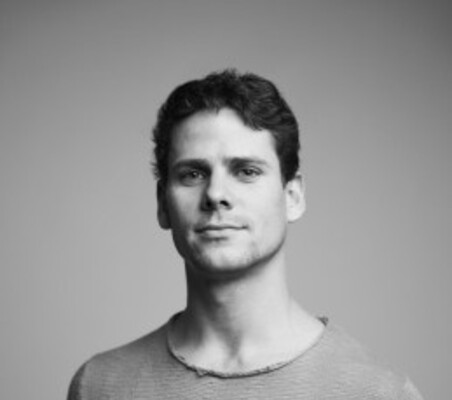Ondřej graduated from Prague Dance Conservatory in 2011, already performing solo roles in the school company Bohemia Ballet. In 2012 he was accepted into the Czech National Ballet, ranking as soloist one year after and principal in 2016. He received two Thalia awards for his lead role of The Chosen One in Le Sacre du Printemps by Glen Tetley (2017) and for the role of Romeo in Petr Zuska’s Romeo and Juliet (2013).
Ondřej Vinklát’s range of roles he portrayed is vast – he was brilliant in choreographic pieces by Ohad Naharin while also bringing depth and character into the roles of classical repertoire. Versatility and passion are his trademarks that he left on his work in ballets by Jiří Kylián, Alexander Ekman or William Forsythe. Known to bring his full potential to his roles, he is able to present an original approach to the role, stemming from his personality and deep interest in the creative process.
Throughout his dancing career, he has been developing his interest in choreographic creation. In 2015 he became the co-director of DEKKADANCERS. He created various choreographic works on the fellow members of this company. While performing in the pieces himself, he often incorporated not only dance but also other skills such as playing the piano, singing or beatboxing. His pieces include Dumka (2018, for Czech National Ballet), HornyBach (2019, for DEKKADANCERS with Štěpán Pechar and Marek Svobodník) or The Last Supper (2017, for DEKKADANCERS, with Pechar and Svobodník).
In 2019, he retired from the National Theatre Ballet, choosing to focus on independent work.
His most recent creation for DEKKADANCERS is A.I. (2020), choreographed together with Viktor Konvalinka and Štěpán Pechar, dealing with the depths of one fascinated mind.
His dance is as natural as human speech. That's why it works on stage so naturally and actually very lightly. This makes you feel that dancing is not that complicated. But this is a big mistake... Themes that attract and excite him as a dancer, but also as a choreographer, must resonate with him. When I see him on stage, he gives a complete dance-acting performance. Ondra has a big heart, a kind of inner purity, which the viewer just has to recognize from his roles. (Jiří Lábus, Divadelní noviny, 2020)

